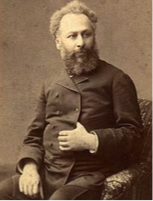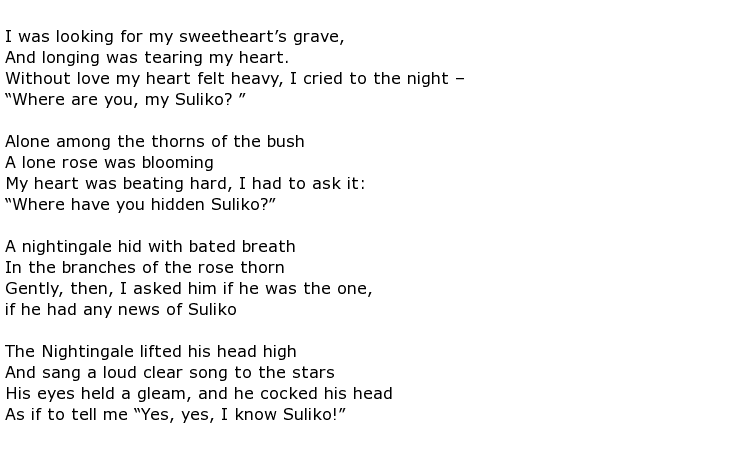 The famous Georgian poet Akaki Tsereteli came from a long established aristocratic family and was therefore entitled to use the title Prince before his name. As well as being a well renowned poet and a pioneer in education in the country he was also prominent in the burgeoning national liberation movement during the 19th century.
The famous Georgian poet Akaki Tsereteli came from a long established aristocratic family and was therefore entitled to use the title Prince before his name. As well as being a well renowned poet and a pioneer in education in the country he was also prominent in the burgeoning national liberation movement during the 19th century.
He was born on the 9th June 1840 in a small village called Skhvitori, which lies in the region of Imereti in Western Georgia. His mother, Princess Ekaterine, was a relative of King Solomon the first of Imereti and his father was Prince Rostom Tsereteli. . It was traditional at that time that even though a child was born into such a privileged background they would be raised by a local peasant family. Tsereteli was sent to such a family in Savane and, thus, under the care of peasant nannies, he spent his childhood years learning to appreciate the hardships suffered by the poor people in his country.
His education began at the gymnasium in Kutaisi, from where he graduated in 1852. He went on to study at St Petersburg University, graduating from there in 1863. This was a time of great unrest amongst Georgians against the ruling Tsar and the young Prince Akaki, along with other intellectuals such as Prince Ilia Chavchavadze, spoke out and campaigned vigorously on behalf of their fellow countrymen. Their primary aim was for self-determination for all Georgians. He also worked hard towards reviving long lost elements of Georgian culture as well.
During his lifetime Prince Akaki was responsible for a huge output of poems, many of them of a strong patriotic and historical nature. He also wrote humorous, sometimes satirical verse and produced at least one autobiographical novel. His efforts to promote Georgian literature and culture saw him actively involved in the theatre and educational projects. He also contributed articles to various newspapers and periodicals.
His lyrical style of poetry meant that he could call himself a songwriter too and some of these lyrics were adapted into what became a famous folk song. This was a romantic piece of work which, it was reported, became a favourite of Joseph Stalin. Here are the first four verses of the song:

Prince Akaki Tsereteli had a relatively long and prosperous life which ended when he passed away on the 26th January 1915, aged 74. His body was interred in Tbilisi at the Mtatsminda Pantheon.
Shortly after his death the Tbilisi State University was established and then, in 1990, as monumental changes occurred throughout the Soviet Union, it was renamed the Akaki Tsereteli State University in honour of this great Georgian poet and tireless campaigner for Georgian autonomy. Independence from the Soviet state had been a long time coming, but the vision of Prince Akaki Tsereteli and his compatriots was finally achieved.

